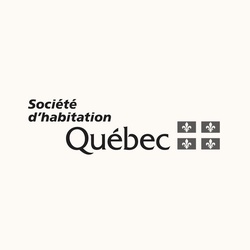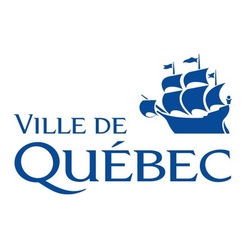
Petits établissements accessibles
At a glance
- Maximum amount : 30,000 $
- Up to 90% of project cost
- Closing date : March 31, 2026
- Retail trade
- Accommodation and food services
- Other services (except public administration)
- Public administration
- Quebec
- Non-profit
- Public or Parapublic institution
- For-profit business
- Sole proprietorship
- Social economy enterprise
- All revenue ranges
- All organization sizes
- Persons with Disabilities
- Economic, Social and Community Development
- Business Associations
- Diversity and Inclusion
- People with disabilities
- Business owners / entrepreneurs
- All structures
- Local
- Municipal
- Regional
Overview
The Petits établissements accessibles (PEA) program in Quebec provides up to $30,000 in funding to improve accessibility for people with disabilities or reduced mobility by supporting permanent, cost-effective renovations in small commercial, business, and meeting establishments. Eligible activities include improving building access, creating unobstructed pathways indoors, and enhancing bathroom accessibility.
Activities funded
This program offers financial support for renovations and improvements to enhance accessibility for small establishments not legally required to comply with the building accessibility standards. The focus is on reducing architectural barriers and improving access for individuals with disabilities or reduced mobility.
- Ensuring accessible entry to the establishment by making necessary alterations to allow unhindered access for individuals with disabilities.
- Improving circulation within the building to provide an unobstructed path to services and restrooms for clients with disabilities.
- Modifying restroom facilities to accommodate use by individuals with disabilities or reduced mobility.
Eligibility
The eligibility criteria for obtaining a grant under the "Petits établissements accessibles" program are specified for both individuals and buildings.
- Eligible applicants must be either owners or tenants of a building or part of a building used for commercial or community activities or providing services to the public.
- The eligibility of tenants is conditional on obtaining consent from the property owner to carry out the work.
- Ineligible applicants include those listed in the Register of Ineligible Enterprises for Public Contracts (RENA) and those who have failed to meet obligations related to previous financial aid from the Société within two years before applying.
- Eligible buildings include business establishments with no more than two floors offering on-site services, commercial establishments with no more than 300 square meters of total floor area, and meeting establishments with specific size or capacity criteria.
- Ineligible buildings are those owned or leased by government departments, crown corporations, or municipal entities, those eligible for other accessibility programs, under legal dispute regarding ownership, or that have already benefited from this program.
Who is eligible?
Eligible applicants for the 'Programme Petits Établissements Accessibles' include individuals who are either owners or tenants of small establishments in Quebec engaging in commercial, business, or community activities. The tenant's eligibility depends on the property owner's consent to the modifications. However, individuals listed on the Registre des entreprises non admissibles aux contrats publics (RENA) or those who have previously breached financial assistance agreements within the last two years are not eligible to apply.
Who is not eligible
Certain businesses and entities are excluded from applying for this grant based on their ownership, previous grant interactions, or specific conditions associated with their buildings. These restrictions are put in place to target the funding toward eligible entities committed to accessibility improvements.
- Businesses listed on the Register of companies ineligible for public contracts (RENA).
- Applicants who have previously defaulted on obligations related to prior financial assistance from the Société d'habitation du Québec.
- Buildings owned or rented by ministries, Quebec and Canada government agencies, state-owned enterprises, or municipal entities.
- Structures already benefiting from the Ministry of Tourism's accessibility program.
- Buildings subject to ownership title disputes or expropriation processes.
- Properties under construction or planned future construction.
- Establishments located in vulnerable natural zones, such as high-flow flood zones, unless adequately protected against such risks.
Eligible expenses
The grant covers specific expenses directly related to making small establishments more accessible for individuals with disabilities and mobility issues.
- The recognized cost of eligible permanent accessibility-related construction work, including materials, labor, and administration fees, if they meet accessibility requirements.
- Professional fees for plans and blueprints mandated by law or regulation, as long as these are linked to eligible projects and if the projects are executed.
- The cost of municipal permits required for the execution of eligible work.
- Applicable taxes, considering any tax rebates the applicant can claim must be deducted from eligible costs.
Eligible geographic areas
The Petits établissements accessibles program is available to businesses located in specific regions within Quebec. The eligible locations are determined to enhance accessibility for people with disabilities.
- All regions within Quebec, excluding areas within Indian reserves.
How to apply
Eligibility Check
- Check that you are eligible as a property owner or tenant of a building used for commercial or community activities.
- Ensure that your building meets the eligibility criteria defined (e.g., building size, type of establishment, etc.).
Preparation of the documents
- Gather the necessary supporting documents, such as the tax account and photos of the work to be done.
- Obtain a minimum of two detailed quotes from contractors holding the appropriate RBQ licenses.
- Ensure that all quotes include the costs of materials, labor, administrative fees, and taxes.
Filling out the application form
- Complete the prescribed or authorized application form from the Company.
- Include all supporting documents required to support your application.
Submission of the request
- Send the completed form and supporting documents to the Société d’habitation du Québec.
- Provide any additional information that the Society may request.
Reception and assessment of the request
- The Company will review your application and the supporting documents.
- In case of compliance, the Company will issue a certificate of eligibility and confirm the amount of the maximum eligible financial assistance.
Execution of the work
Reception of financial aid
Additional information
Here are additional relevant details for this grant:
- The total grant amount cannot exceed 90% of the recognized total costs of the project.
- Projects must be completed within 12 months from the issuance of the eligibility certificate, or the funding could be revoked.
- The financial aid is dispersed at the end of the project, but partial disbursements up to 40% can be made if the project is lengthy or interrupted.
- A detailed evaluation process, including verification of the project's completion against the approved plans and specifications, will precede the grant payment.
- Applicants must provide at least two detailed quotes from licensed contractors for their projects.
- The program is not applicable to buildings on reserve lands.
- The Société may involve partners like municipalities for program administration and can provide up to 14% of the budget to partners for program management.
- An obligatory final report evaluating the program's efficacy will be presented to the Secrétariat du Conseil du trésor by September 2025.
Frequently Asked Questions about the Petits établissements accessibles Program
What is the Petits établissements accessibles?
How much funding can be received?
Who is eligible for the Petits établissements accessibles program?
What expenses are eligible under Petits établissements accessibles?
Who can I contact for more information about the Petits établissements accessibles?
Where is the Petits établissements accessibles available?
Is the Petits établissements accessibles a grant, loan, or tax credit?
More programs like this

Financial support to assess your energy use Hydro Quebec
Hydro-Québec
MT Lab — Project Financing Program — Component 2
MT Lab
MT Lab — Project financing program — Component 1: Strategic support
MT Lab
Regions and Rurality Fund (RRF) - Component 1 - Support for regional outreach
Gouvernement du Québec
Virage techno – shops, restaurants and accommodation downtown
Ministère de l'économie, de l'innovation et de l'énergie du Québec (MEIE)
Organic Waste Management Support Program for Industry, Commerce, and Institutions (PMOICI)
Recyc-Québec
Tourism Innovation Program — Stream 2 - Support for projects and the development of innovative businesses
MT Lab
Défi-Québec, Commercial City
Quebec City
Rouyn-Noranda — FLI-FLS – Entrepreneurial Succession
City of Rouyn-Noranda